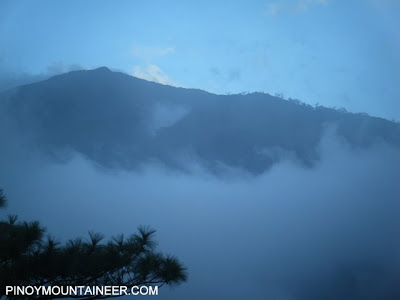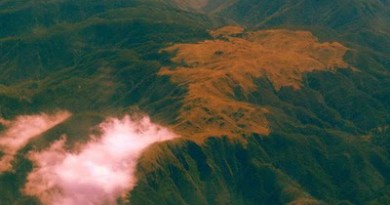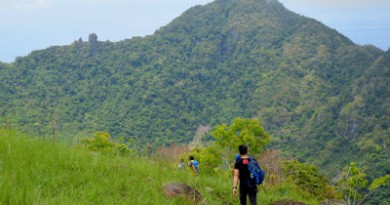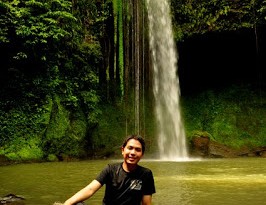Essay: In the campsites and the trail, let nature’s sounds prevail
by Gideon Lasco
PinoyMountaineer.com
Now I will take this opportunity to affirm a very fundamental yet frequently violated principle in outdoor ethics: “Let nature’s sounds prevail”. This is a very important part of the Leave No Trace principles, and you can check their website if you don’t believe me. Positively, it affirms the beauty of basking in the cacophony of the birds and the insects; this is nature’s song and it is part of the experience of hiking and going to the outdoors. Negatively, it discourages, and indeed disallows, hikers from being too loud and noisy when going about their hiking. In violating this principle, they are producing ‘noise pollution’, and just like any other form of pollution, it is damaging to the environment, and disrespectful of other hikers and even indigenous peoples.
Among some mountain communities, there is a belief that if hikers are too noisy, clouds will cover the view and it will rain.This belief can be found in Mt. Pulag, Mt. Dulang-Dulang, Mt. Apo, and many other mountains in the Philippines.
Could there be an underlying message in this belief, a reminder to hikers that if they are too noisy, something bad will happen? Filipinos are often non-confrontational and perhaps this is a subtle reminder for hikers to “shut up” while on the trails. Culturally, this can be a reminder too that indigenous peoples are not used to loud noises. They are very sensitive to the voices of the forest, and any disruption, like a loud radio, can affect their sleep and way of life. Surely, as visitors to their domain, we must respect their wishes!
Many hikers, like me, go up the mountains to find peace, tranquility, and enlightenment. One of the reasons I look forward to camping in the woods is that it is very peaceful up there, not like my place in Makati where the constant noises of the metropolis can be heard, even at night. Sadly, if there’s a noisy group in the same campsite, my enjoyment can be diminished. If I confront the group, there is a risk of it being an unpleasant encounter. If I do not confront the group, I will lose my peace of mind, so it’s a no-win situation. This is the reason why I tend to avoid camping in crowded campsites like those of Mt. Batulao and Mt. Maculot on weekends. As author of this website, I also hear a lot of complaints regarding this issue, but since it is website policy to disallow personal attacks, I do not publish these comments. Still, I can empathize with these frustrations, and I am writing this partly in response to their grievances.
I find it even worse that people can even bring speakers that blast loud noises in campsites well into the night. If you cannot last for two days without hearing the voices of your favorite singers, then get some earphones. At the very least, respect the sanctity of the evening rest and allow people to sleep when it’s past dining hours. These people, after all, might need rest for the next day’s hike. (I would suggest 2100H as the lights off/sounds off time, but at any given time of the day, I believe people are entitled to some degree of silence).
Mountain climbing, in many ways, endows us with a lot of freedom when on the trails; indeed the popular textbook even describes mountaineering as the “freedom of the hills”. But with this freedom comes responsibility: The freedom to make noise should not trespass with the freedom of other hikers to have their silence and peace. Indeed, moderating your voices and sounds in the campsites and the trail is a sign of true respect to other hikers.
Finally, studies are now emerging that noise pollution can affect ecosystems. Birds, reptiles, and insects all use sounds to communicate with each other, and the noises in the campsite can affect them in ways that are not yet fully documented by the life sciences. Yet even without hard figures it should be obvious that artificial and foreign noises can disrupt them, and would drive them away from areas near trails and campsites, potentially further reducing their already-dwindling habitat.
Thus, if we respect mountain communities, mountain climbers and mountain ecosystems, we must avoid loud voices and noises. Let us shout, but only in our minds, and never in the mountains, these lines: In the campsites and trail / Let nature’s sounds prevail!






Leave a Reply
4 Comments on "Essay: In the campsites and the trail, let nature’s sounds prevail"
Worst for me are those who take the effort and bring the worshiping and loud singing up there. Don’t they have worship houses/churches already?
i am a newbie to mountain climbing. this is a very informative and enlightening piece of article. i love your sincerity and your concern to nature. i must admit, i never really understand many things with regard to mountain climbing. with this one, i am now validating and assessing how i acted while i was out there. i think isa din ako sa mga nag-ingay. it is also true that many mountain climbers go out there to find peace and silence and i should respect that. in my past three climbs, i noticed more and more younger climbers are getting in to it, most of them magbabarkadas, college students, very lively, full of fun, and super maiingay (lalo na pag lasing) i hope that we should all be educated how to conduct ourselves while we are in the wild and not to be wild. i think enforcement of certain rules should be more strict. i hope authorities in different climb sites are really stern with these rules and climbers are intelligent enough to understand and follow such rules. thank you for this article and hope i can follow what you have wrote.
I equivocally agree with this low-noise rule for hikers and climbers, also out of respect for the indigenous people in the area. But I may add an exception, especially when you're hiking in North America and the area is a declared bear-grizzly country. Minimum of 6 is allowed at the trail head and we are advised to talk loudly. Fancy rattles and noise makers doesn't work. Many fatalities in the backcountry due to black bear/grizzly maulings were because the hikers "surprised the animal at the next turn". Though these top predators are 20 times more sensitive than humans, still they may not hear you when they are upwind. So, just asage advise for those planning day hikes or muloti-day scrambles in USA or Canada.
Thanks for this article..I hope that Pinoy hikers could read this and be reminded that we should be sensitive and respectful enough to the beliefs and practices of the IPs as well as to fellow hikers. It's really annoying when there are "loud" hikers in the camp, most especially along the trail. I experienced this when i climb G2 last April of this year. On our way to the summit from Mayo's peak, our guide keep on reminding us to minimize our voices so as not to disturb the "dwellers" of the mountain. While enjoying the moment at the peak, there was this "loud" group of hikers trying to find mobile phone signals at the peak and talks about facebook and NBA updates. Unfortunately again, this was the same group who at 4:30am the next day (at Mayo's Peak), keeps on shouting and singing on top of their voices while packing up.